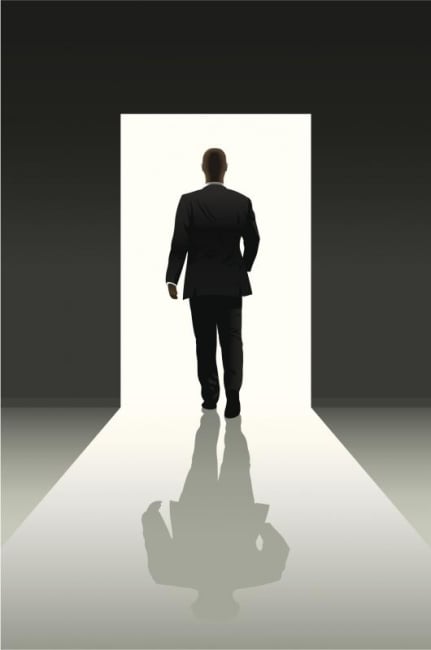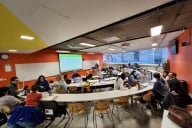You have /5 articles left.
Sign up for a free account or log in.

timoph/digitalvision vectors/getty images
I am retiring at the close of the recent fall semester after 38 years of teaching. In ordinary times, this would be an unexceptional statement, especially with some 10,000 Americans reaching the traditional retirement age of 65 every day and given that I’m 68. But for retiring college faculty, class of 2020-21, nothing is ordinary.
Over the past several years, I have often imagined what it will be like to teach the final class, say goodbye to the final group of students, leave the classroom for the final time.
What comes to mind is a professor from my graduate school days in the early 1980s. On a lovely May afternoon of the sort we enjoy in the Northeast after the usual harsh winter, with exams ended, he came out of his office to announce he was off to turn in his grades for the last time in a long career. There was something ceremonial about handing in grades then: filling out triplicate forms with a pen, pressing hard to make the copies come through on each sheet, signing everything and walking the documents to the registrar’s office. I can see him ambling across the central quad with the papers rolled in one hand, past students lazing on the lawn or tossing Frisbees.
I was in my 20s then, so my view of retirement was like William Saroyan’s notion of another sort of ending: “Everybody has got to die, but I have always believed an exception would be made in my case.” Today, like Saroyan, I ask, “Now what?”
“Retire” comes to us from the French and means to draw back, especially to a place of safety or seclusion. The etymology resonates now as all of us retreat from our students and each other. Professors in face masks lecture from behind Plexiglas partitions or through a screen on Zoom.
We are, all of us, retiring now.
The separation from campus -- the drawing back caused by the coronavirus -- has sharpened the edge of my retirement by removing the physicality of it. And that is what the academic life is really about, notwithstanding our devotion to the life of the mind. I doubt that few of us recall fondly our time on Zoom. We remember feeling the hustle of campus in fall, enjoying coffee hours with colleagues, seeing friends and students at the gym, strolling around campus to take a break from writing, chatting with students in our offices, having a terrific class.
By rough calculation, I’ve taught 4,500 students, coincidentally the seating capacity of my university’s hockey arena. I have taught classes in literature, writing, technical communication and, most memorably a year ago, freshwater fly-fishing (a health and wellness elective). It was the only course in a long career that did not require me to read and grade papers. We met in a gym to practice casting. On the last day, we went fishing at a pond on the edge of campus. Best student evaluations ever.
This is all to say that it’s the physical, tangible things about the professor’s life that resonate.
An Inflection Point
We of the current retiring class leave academe at what seems like an inflection point. The coronavirus has intensified debates over the state of higher education: too expensive, too exclusive, too hidebound in its practices. At the end of the previous academic year, after colleges and universities had scrambled to stay in session during those first frightening months of the pandemic, some people saw an opening for online education to break through significantly. We were prompted to ask ourselves, echoing Bill Gates, “What are we doing with all these buildings?”
I have worked for more than three decades at a university that has been a pioneer in distance education, and I have taught classes online -- and even through the mail -- since 1992. I’m hardly a Luddite. On the contrary, I’ve embraced online methods in my classes whenever they offered pedagogical benefits, and I’ve taught numerous online classes on the undergraduate and graduate levels.
So I’m accustomed to working with students from my laptop, as I’ve done with two classes during my valedictory semester. But this is not what I had in mind, not what I imagined, for the final curtain. The general drawing back has made my personal retreat even more bittersweet, as I recall many face-to-face teaching moments and wonder if that model may be endangered.
It’s as if higher education were living through a sort of pandemic-induced natural experiment regarding the future of the university and of teaching. All of us have drawn back for the time being to ponder what next year will look like when, and if, students and faculty members once more return to campus for the usual rites: orientation, convocation, zombie hunts, the first class of the year.
I think the experiment is demonstrating how badly we need those physical realities of the educational enterprise -- how much we miss them. How much I’ll miss them after finally, at the close of this semester and of my career, I’ll turn in my final grades and say goodbye … by hitting Enter.








